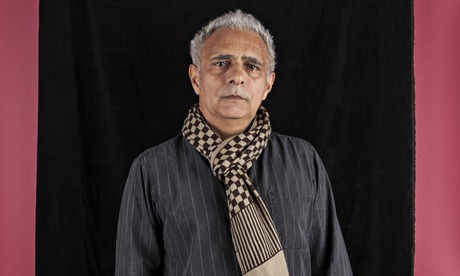
I doubt Hanif Kureishi, when he spoke at the Bath literature festival on Sunday, anticipated his comments about creative writing courses being a "waste of time" would end up all over the press. But why is he teaching writing if that's how he feels? If I was one of his students, I'd be furious to hear myself described as "talentless" and to think that he scorns the course I'd invested my time and money in.
Twenty years ago, just out of my BA, I joined the novel-writing MA at Manchester University. I've never believed creative writing courses can teach you to write if you have no talent, but I knew this course would give me dedicated time to write, feedback from tutors and fellow students, and that most useful of all things – a deadline. I went on to publish my novel with Sceptre, and then wrote a further four. Four more students from my cohort gained publishing deals, including the best-selling author Sophie Hannah and Bafta-winning screenwriter Sam Bain.
Returning to Manchester to lecture on that same course, I discovered a love for helping new writers find their focus and learn to play to their strengths. But I soon became troubled by the relationship between academia and the craft of writing. With thousands of hopeful writers now passing through university turnstiles, I'm dubious about the real worth of the MA, the PhD or, more ambiguous still, the "certificate of creative writing" they end up with. In my experience, what most writers on university postgrad courses really want is to find out if they can write a publishable novel.
In 2011, working as a literary agent, I launched Curtis Brown Creative, the first agency-led writing school. My conviction was that a literary agency is in a prime position to find talented writers, help them to get the best out of their writing, and educate them in the ways of today's publishing industry. We're unencumbered by university bureaucracy or the mismatch between academia's ideas of literary worth and the kind of novels people want to buy and read. We don't – and shouldn't – promise publication. But we attract loads of applicants so that we can be selective about who we take, and we maximise their chances of success by bombarding them with everything we know about how to make their novels fly and how to pitch them. I'm incredibly proud of the nine students who have already gained major publishing deals, as well as the many others still working on vibrant and distinctive debut novels.
Creative writing courses are not all the same, much as they're lumped together in the endless debate about their worth. And it's not all about "becoming a writer" - there are great courses to help you explore your creativity, figure out how to tell a family history or put words to a story that's been running around your head for years like a catchy song. But those hoping to make writing a more central part of their lives should subject their dreams to hard scrutiny. Writing a good novel is not easy – it takes talent and determination. A creative writing course could help you, but find one with a good track record, taught by published authors who treat their students with respect. As creative writing courses proliferate like mould on bread, do your research before you part with your money.

